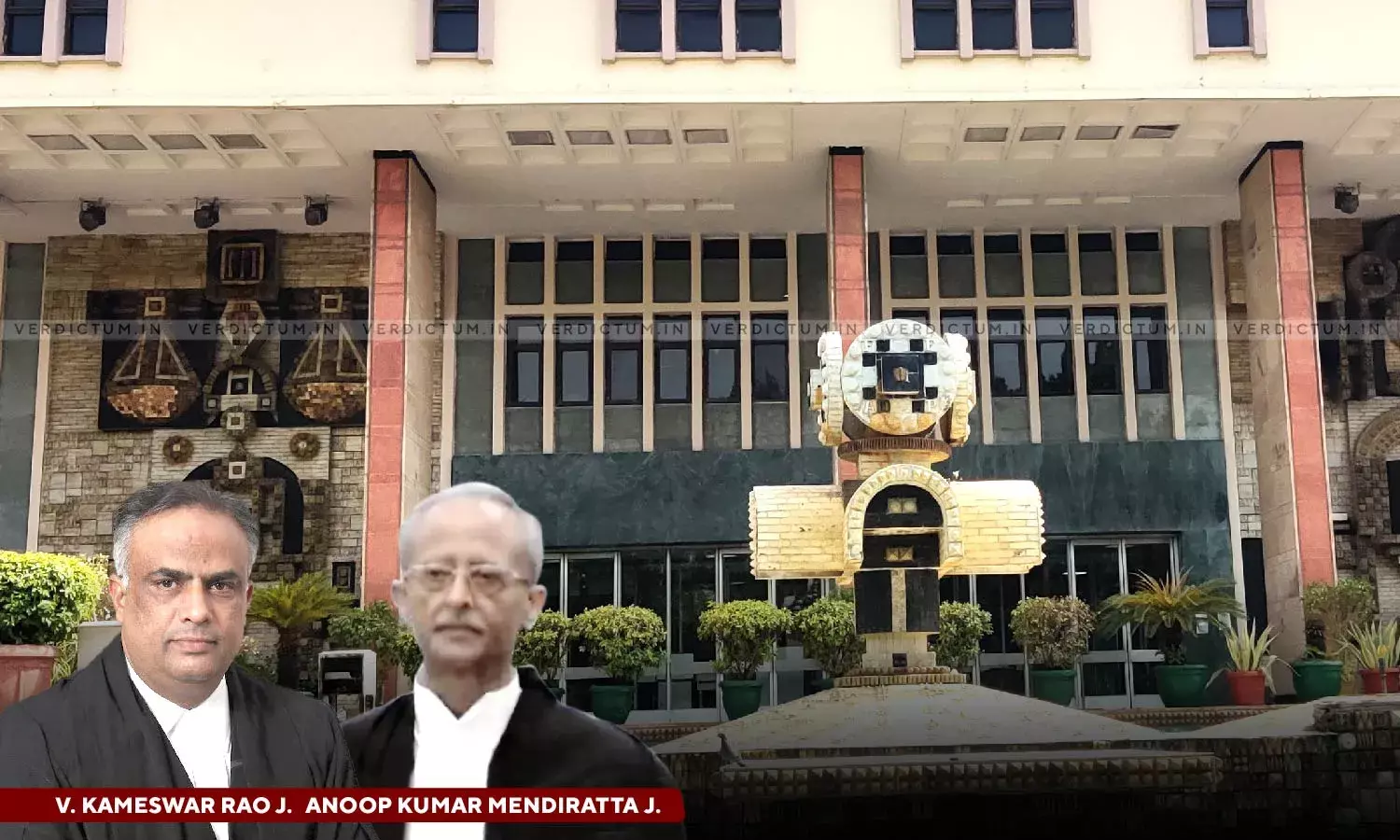Appointment Cannot Be Kept In Abeyance Just Because Applicant’s Name Was Mentioned In FIR Concerning Matrimonial Dispute: Delhi HC
Observing that there is nothing on record to reflect that the antecedents of Petitioner disqualify him in any manner for appointment to the post of Sub-Inspector (Exe) in Delhi Police, the Delhi High Court held that that the Petitioner’s appointment cannot be kept in abeyance just because his name was mentioned in an FIR concerning a matrimonial dispute.
Finding that the Competent Authority as well as the Tribunal (Respondents) failed to consider the facts and circumstances in a correct perspective and were merely swept by the factum of the Petitioner being named in the FIR, the Division Bench of Justice V. Kameswar Rao and Justice Anoop Kumar Mendriatta observed that “at the time of taking of cognizance on the charge-sheet, the Judicial Magistrate having applied its mind to the facts of the case and based on the evidence on record, did not deem it appropriate to summon the petitioner. If the petitioner whose name is placed in Column No. 12 had not been summoned after taking of cognizance by the JMIC, a presumption could not have been drawn that the petitioner may be summoned at a later stage under Section 319 Cr.PC”.
Advocate Aadil Singh Boparai appeared for the Petitioner, whereas Advocate Avnish Ahlawat appeared for the Respondents.
In the background of the case, the Petitioner had passed all the tests required for appointment for the post of Sub Inspector (Exe) in Delhi Police and was awaiting the result which is followed by a police verification for a background check. In the meantime, the Petitioner’s sister-in-law filed an FIR which also mentioned the Petitioner as an accused. Accordingly, his appointment was put on hold subject to the outcome of the trial taken upon by the JMIC. Hence, the present petition.
Counsel appearing for the Respondents submitted that Petitioner’s case was duly examined by the Screening Committee and as it was a case of serious offence, his appointment has been kept in abeyance subject to decision of the trial and until the appeal if any is disposed of.
After perusing the submission, the Bench referred to guidelines laid down in Avtar Singh vs. Union of India [(2016) 8 SCC 471] and observed that the Competent Authority has to exercise its discretion as per the nature of the post and circumstances and cannot decide all cases in a uniform manner.
“The Competent Authority was accordingly under obligation to examine the nature of offence, the evidence appearing against the petitioner and the attendant circumstances. All matters in this regard cannot be placed in a straitjacket and a degree of flexibility and discretion does vest with the authorities, who are expected to exercise the same with care and caution”, added the Bench.
The Bench also highlighted the fact that there has been a growing tendency in cases of matrimonial disputes especially, wherein the women rope in all relatives while making a complaint which eventually gets settled in later stages.
After examining the order passed by the Respondents, the High Court found that “Standing Order No. 398/2018 dated October 18, 2018 of the respondents does provide for a policy for deciding cases of provisionally selected candidates in Delhi Police who have disclosed their involvement in criminal cases/acquittal/discharge etc. However, mere possibility of being summoned after filing of chargesheet, when the petitioner has been placed in Column 12 of charge-sheet, has no legal foundation for withholding the appointment, especially in matrimonial offences under Sections 498-A/406 IPC.”
Therefore, elucidating that criminal trials are generally long and protracted and hence, the Petitioner cannot be made to suffer ignominy due to registration of FIR, the High Court allowed the petition and directed the Respondents to appoint the Petitioner to the concerned post along with seniority benefits, if any.
Cause Title: Vikram Ruhal v. Delhi Police and Ors. [Neutral Citation No: 2023: DHC: 3852 – DB]
Click here to read/ download Judgment












